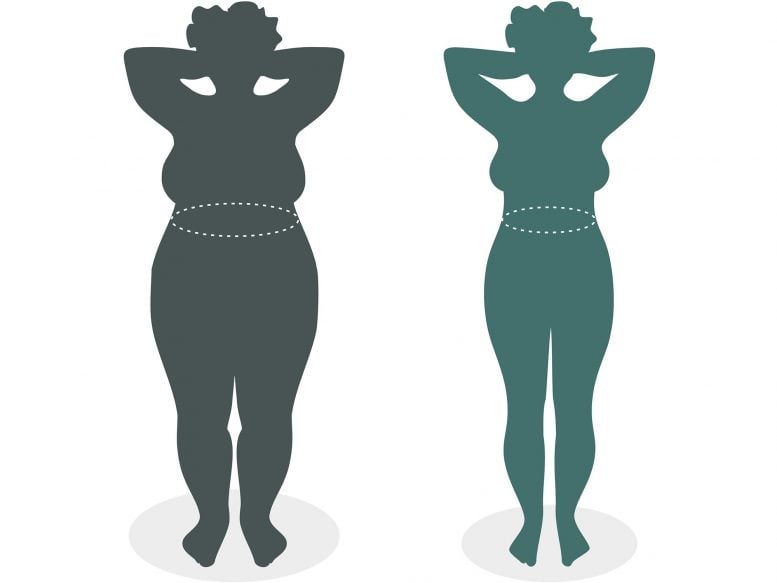
Posted on 07/10/2025 10:54:30 AM PDT by Red Badger

A new drug prevents weight gain and fatty liver by controlling magnesium in cells. It made mice stay slim despite lifelong exposure to an unhealthy diet. Credit: Stock
Scientists have unveiled a small-molecule drug that blocks weight gain and liver damage in mice forced to live on sugary, high-fat food.
The compound works by limiting magnesium inside mitochondria—the cell’s power plants—so energy keeps burning instead of stalling. Treated mice quickly slim down and show no signs of fatty-liver disease, hinting at a future therapy against obesity, heart trouble, and cancer tied to poor diets.
Breakthrough Drug Fights Fat and Liver Disease
Researchers at UT Health San Antonio, working with colleagues from the University of Pennsylvania and Cornell, have created a small-molecule drug that keeps mice from gaining weight or developing liver damage even when they eat a lifetime of sugary, high-fat food.
“When we give this drug to the mice for a short time, they start losing weight. They all become slim,” said Madesh Muniswamy, PhD, professor of medicine in the health science center’s Joe R. and Teresa Lozano Long School of Medicine. The study appears in Cell Reports.
“A drug that can reduce the risk of cardiometabolic diseases such as heart attack and stroke, and also reduce the incidence of liver cancer, which can follow fatty liver disease, will make a huge impact.”
Magnesium’s Hidden Role in Metabolism
The team began by asking how magnesium shapes metabolism—the way cells make and burn energy called ATP. Magnesium is the body’s fourth-most abundant charged mineral, vital for blood sugar control, blood pressure, and bone strength. Yet the scientists discovered that an excess of magnesium inside mitochondria, the cell’s “power plants,” actually slows energy production.
“It puts the brake on, it just slows down,” said co-lead author Travis R. Madaris, doctoral student in the Muniswamy laboratory at UT Health San Antonio.
When the researchers deleted MRS2, a gene that shuttles magnesium into mitochondria, the animals burned sugar and fat more efficiently. The mice stayed lean and healthy, with liver and fat tissue showing no trace of diet-induced fatty liver disease.
Man Stepping on Brake Pedal
Magnesium acts like a brake on energy production, researchers found. Credit: Shutterstock Drug CPACC Mimics Genetic Effect
The drug, which the researchers call CPACC, accomplishes the same thing. It restricts the amount of magnesium transfer into the power plants. In experiments, the result was again: skinny, healthy mice. UT Health San Antonio has filed a patent application on the drug.
The mice served as a model system of long-term dietary stress precipitated by the calorie-rich, sugary and fatty Western diet. The familiar results of this stress are obesity, type 2 diabetes and cardiovascular complications.
“Lowering the mitochondrial magnesium mitigated the adverse effects of prolonged dietary stress,” said co-lead author Manigandan Venkatesan, PhD, postdoctoral fellow in the Muniswamy lab.
Joseph A. Baur, PhD, of the University of Pennsylvania, and Justin J. Wilson, PhD, of Cornell, are among the collaborators. “We came up with the small molecule and Justin synthesized it,” Madaris said.
Major Health Impact Potential “These findings are the result of several years of work,” Muniswamy said. “A drug that can reduce the risk of cardiometabolic diseases such as heart attack and stroke, and also reduce the incidence of liver cancer, which can follow fatty liver disease, will make a huge impact. We will continue its development.”
Reference:
“Limiting Mrs2-dependent mitochondrial Mg2+ uptake induces metabolic programming in prolonged dietary stress”
by Travis R. Madaris, Manigandan Venkatesan, Soumya Maity, Miriam C. Stein, Neelanjan Vishnu, Mridula K. Venkateswaran, James G. Davis, Karthik Ramachandran, Sukanthathulse Uthayabalan, Cristel Allen, Ayodeji Osidele, Kristen Stanley, Nicholas P. Bigham, Terry M. Bakewell, Melanie Narkunan, Amy Le, Varsha Karanam, Kang Li, Aum Mhapankar, Luke Norton, Jean Ross, M. Imran Aslam, W. Brian Reeves, Brij B. Singh, Jeffrey Caplan, Justin J. Wilson, Peter B. Stathopulos, Joseph A. Baur and Muniswamy Madesh, 27 February 2023, Cell Reports.
DOI: 10.1016/j.celrep.2023.112155
Funders of this project include the National Institutes of Health, the U.S. Department of Defense and the San Antonio Partnership for Precision Therapeutics.
A version of this article was originally published in April 2023.
No. Actually I lost about 40lbs on Keto, down to my "proper" weight, but I'd like to know if there were any further developments since 2023.
I'm firmly convinced that you can lose weight without "deprivation"...but also that you can't eat just anything.
Most popular dishes, fast food and "ultra-processed foods" are loaded with carbs because carbs are cheap. They are used as filler. (bread, tortillas, noodles etc, wheat and corn flours, and especially sugar...any kind).
For a while, I had to make practically everything, but now Keto products are starting to show up in the supermarkets....namely white bread, white tortillas and Breyers ice cream products.
The "safe" non-fattening foods are generally located on the outer aisles of the store, on the outside walls. (meats, dairy and produce)
.
The question is how much magnesium is the correct amount? Every single person will have their optimal level.
Disclaimer: Opinions posted on Free Republic are those of the individual posters and do not necessarily represent the opinion of Free Republic or its management. All materials posted herein are protected by copyright law and the exemption for fair use of copyrighted works.